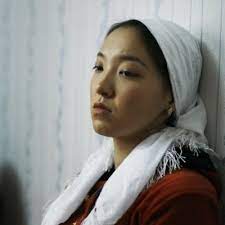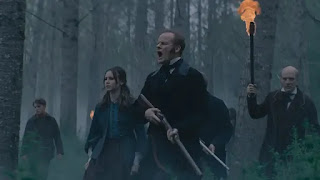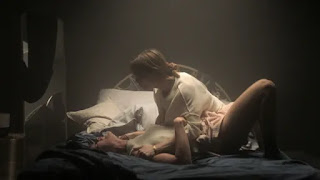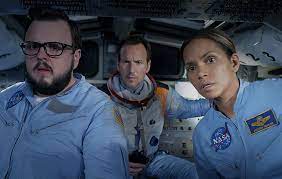When the Academy Awards program is broadcast on March 27th, I’ll be watching — more out of a sense of duty than one of eager anticipation. It’s not that this year’s Academy’s nominations, taken as a whole, are an embarrassment. Nor am I troubled that some of my favorites weren’t acknowledged.
Note the omission of Tessa Thompson from the best actress category and Ruth Negga in the supporting actress category for their work in Passing, a movie that should have gotten a best-picture nod. It didn't.
Nope, none of that.
Diversity, inclusion, and expansion of the Academy’s voting base aside, the Oscars still constitute an industry evaluation of its own work.
I say “an industry” and immediately wonder if the term still means anything. Streaming, the diminishment of adventurous art-house programming, and the increasing absorption of film festivals into various marketing niches have fragmented the movies, pushing them ever closer to cultural marginalization.
It probably needs to be said, although it shouldn’t. I’m not insisting that there are no good movies.
There are plenty of them and, from the look of things, we can expect no shortage in the future — although I’m sure we’ll continue to bicker about what those “superior” efforts are.
I recently read a provocative review in Harpers magazine of a new book about Nicolas Cage (Age of Cage: Four Decades of Hollywood Through One Singular Career by Keith Phipps) and wondered whether the prolific and sometimes risible Cage, might not be a revolutionary when it comes to acting.
Cage can scream, brood, shriek, glower, and quake in ways that may say more about our moment than any of this year’s nominees. And Cage isn’t afraid either of despair or violence, which he knows how to link.
If Cage is being underestimated, future historians might find more reason to study his work than, say, the work of some of this year’s Oscar nominees.
Cage's performance in Pig, a story about a hermitic truffle hunter devoted to his pig companion, was Oscar-worthy, but the movie may have been too weird for Hollywood consideration.
To quote Dan Piepenbring who wrote the review in the February issue of Harpers.
"There's something stalwart, commendable, even comforting about Cage's presence, something that reaches past entertainment toward tangled questions of talent and excess."
Cage, as Piebenbring writes, expresses himself with "violent purity."
Something to consider.
Oscar always raises questions, the low-hanging fruit of all Oscar commentary:
Should Ben Affleck have been nominated in the best-supporting actor category for his work in The Tender Bar? Probably. His acting has gotten better and better.
Should Peter Dinklage have received consideration for playing the lead in Cyrano? He didn't.
Me? I got more enjoyment out of Lady Gaga’s unabashed performance as an aspiring, conniving Gucci in House of Gucci than I did from Nicole Kidman’s Oscar-nominated portrayal of Lucille Ball in Being the Ricardos. No nomination for Gaga.
I'll join you if you're cheered by a best picture nomination for CODA, a story about the pressures on the only hearing person in a fishing family in Gloucester, Mass.
Ditto for the supporting actor nomination of CODA's Troy Kotsur, the deaf actor who plays the family father.
You can make your own list of likes and dislikes but aside from the usual snubs (a best picture nomination for Dune and none for its director, Denis Villeneuve), the list earns a passing grade.
My wariness? It’s just that its announcement will lose much of its luster before the current 24-news cycle begins to sputter.
"Tomorrow, tomorrow, and tomorrow creeps in this petty pace from day to day," to quote from The Tragedy of Macbeth, which deserved but didn't get a best-picture nod. Talk of Oscar nominations will ebb and flow; the industry-oriented press has little choice but to analyze, re-analyze, and predict.
So, yes, I’ll be watching the Oscars and maybe I’ll even offer predictions as part of the annual parade of articles that the Academy Awards encourage.
But if Jane Campion’s Power of the Dog were to lose best picture to Kenneth Branagh’s Belfast, you won’t find me gnashing my teeth or rending my garments. I’ll say that even if something as dubious as the dud of satire, Don’t Look Up, were to win. Yes, it got a best-picture nod.
Why do I say this? Because the only way to maintain sanity as a movie enthusiast is to remember what movies always have offered us, a sanctuary for private indulgence. Yes, under the best of conditions we watch them together, but movies remain our personal property — to be written into our book of memories or discarded along with yesterday’s newspaper. Remember those?
If you haven’t already found one, here’s a link to this year’s full list of Oscar nominees.
















